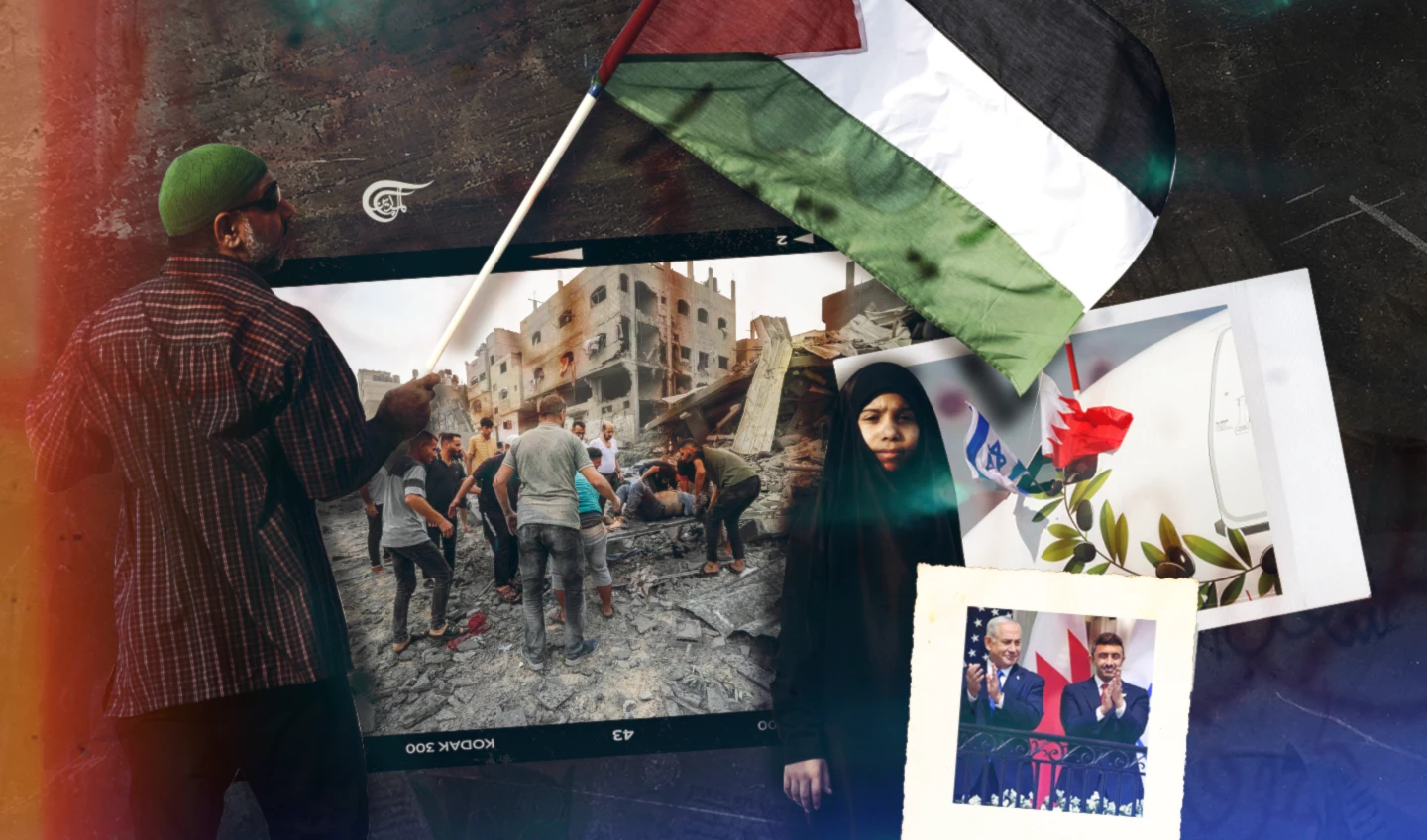Will the regional rapprochement settle Bahrain’s worsening crisis?
There is no hope on the horizon unless the sane officials in the rule respond to the people’s righteous demands, and cut off the popularly-rejected ties with the temporary entity.
-

More than a decade has passed and Manama brazenly denies the existence of a political crisis, and upholds a strict security doctrine and tribal methodology that will backfire on it sooner or later.
The first thing that came to the mind of observers after the Saudi-Iranian agreement has been the reflection of this political rapprochement on Bahrain and its worsening crisis for 12 years in a row, taking into account the issue of normalisation with the temporary entity, which can never be bypassed.
In Bahrain, experience has shown that superficial solutions do not lead to a radical solution, but rather to a temporary “truce” followed by a more violent and bloody explosion, and this is indeed what occurred during the period preceding the current uprising.
While speaking at the Imam al-Sadeq Mosque, Bahrain’s senior cleric Sayyed Abdullah Al-Ghuraify wished that the holy month of Ramadan be devoted to dialogue, securing the release of the prisoners of conscience, and enhancing tolerance, commenting, “When, if not in the month of God, will the homeland enjoy tolerance, security, and safety?”
For his part, leading Friday prayers, Sheikh Ali Al-Sadadi called for a resolution to the country’s years-long political crisis, and the release of political prisoners.
“Is not it time for this dear homeland to heal from its wounds? Is not it time for decades-old issues to be closed?” Sheikh Ali Al-Sadadi wondered, adding, “Instead of open prisons, prisoners must be released, and those exiled brought back.”
Amnesty’s latest 2022 report accused Manama of continuing to restrict freedoms of expression and assembly, and to detain citizens for exercising these rights, including opposition leaders like Sheikh Ali Salman.
The report has further outlined the torture and cruel treatment of several political prisoners, who were deliberately denied access to medical care and endure restrictions on their rights.
Meanwhile, a court of appeals has upheld a January ruling against a group of police detainees, who were accused of “trying to escape from Jau Prison,” which they deny, and allege that they were tortured, unlawfully interrogated, and denied contact with their families for months.
Besides, the authorities continue to deny jailed human rights defender Abdulhadi Al-Khawaja access to a cardiologist, nearly four weeks after experiencing heart palpitations and breathing difficulties.
Despite agreeing to the inhumane conditions (being shackled and transported in a military vehicle, not an ambulance), Al-Khawaja was not taken to any appointment so far.
Al-Khawaja has been arbitrarily detained since 2011 for his peaceful role in Bahrain’s pro-democracy protests. His family has repeatedly warned that “the authorities are using lack of access to proper treatment as a method of punishment.”
Al-Khawaja’s daughter Maryam told The Guardian she does not want to wait around for him to be released “in a coffin.” She also demanded Danish authorities to secure a medical evacuation for him, adding, “If my father dies in prison, I will hold the Danish government just as responsible as that of Bahrain.”
It is noteworthy that Bahrain refused to accept 73 out of a total of 245 recommendations during its Universal Periodic Review at the UN’s 52nd session of the Human Rights Council following exhaustive discussions. During those discussions, some states called on Manama to: Ratify the Convention against Torture; implement legislation against discrimination; and amend the press & electronic media law to promote freedom of opinion and expression.
More than a decade has passed and Manama brazenly denies the existence of a political crisis, and upholds a strict security doctrine and tribal methodology that will backfire on it sooner or later, while the entire international community turns a blind eye & deaf ears to what made it rightly implicated in these blatant violations. In addition, the crises taking place in Bahrain expose its parliament’s fragility and its complete dissociation from the people.
A decade and a half has passed, and the opposition has never stopped its sincere calls for a comprehensive dialogue, the release of prisoners of conscience, the consecration of political rights, and the involvement of the people in decision-making through an elected government & effective parliament. A decade and a half has passed, and the opposition has spared no efforts, calling for an end to the rampant policies of sectarian discrimination and political naturalisation and to deter Manama's security grip.
Unfortunately, all these efforts gave gone in vain. Manama’s slogans of “coexistence” apply to all non-Bahrainis, including the Zionists, except the indigenous people. Since Riyadh’s reconciliation with Doha, Manama has opted to continue its approach of political intrigue, and thus, the continuation of the crisis. Hence, there is no hope on the horizon unless the sane officials in the rule respond to the people’s righteous demands, and cut off the popularly-rejected ties with the temporary entity.

 Sondoss Al Asaad
Sondoss Al Asaad
 5 Min Read
5 Min Read









